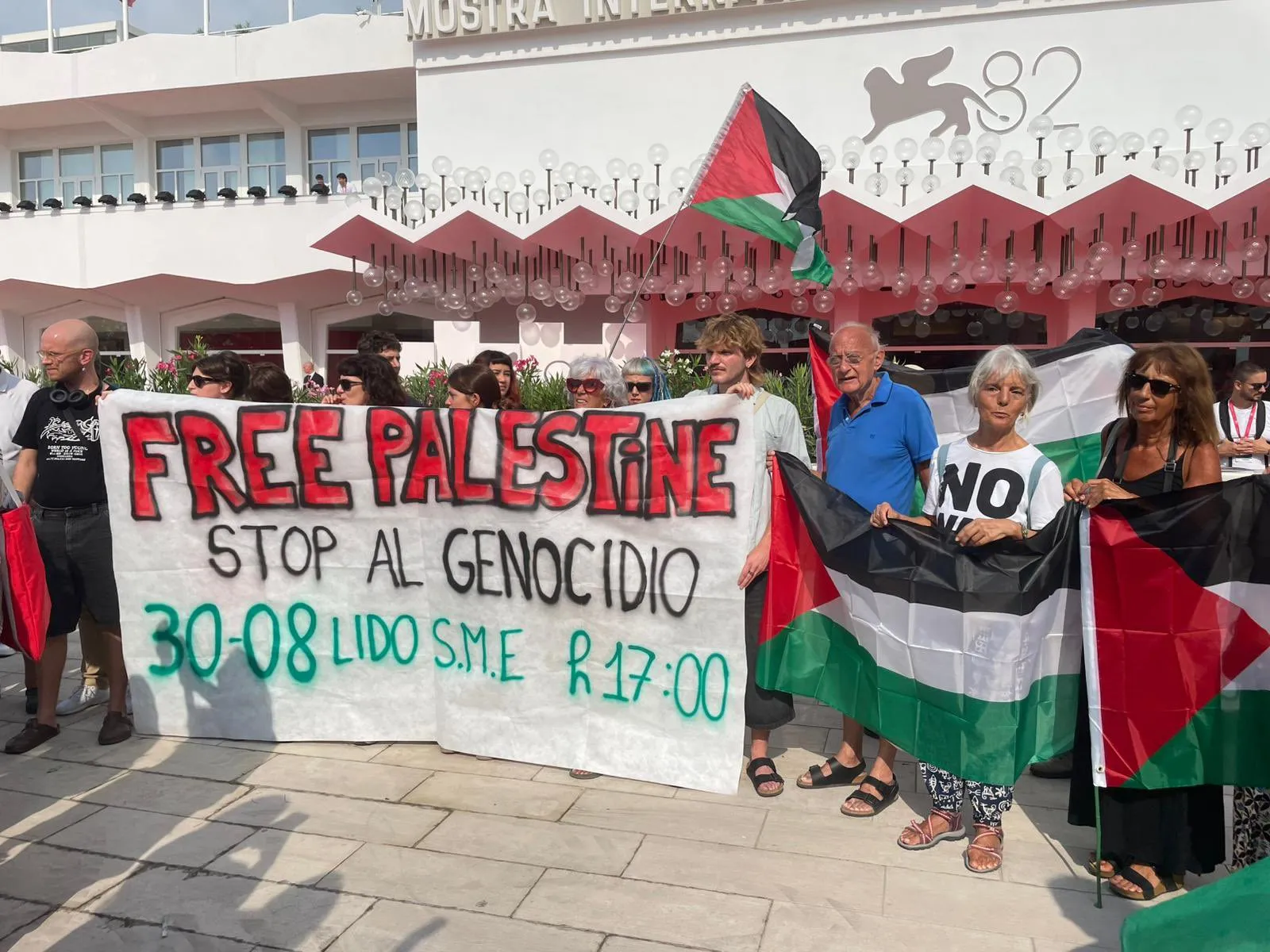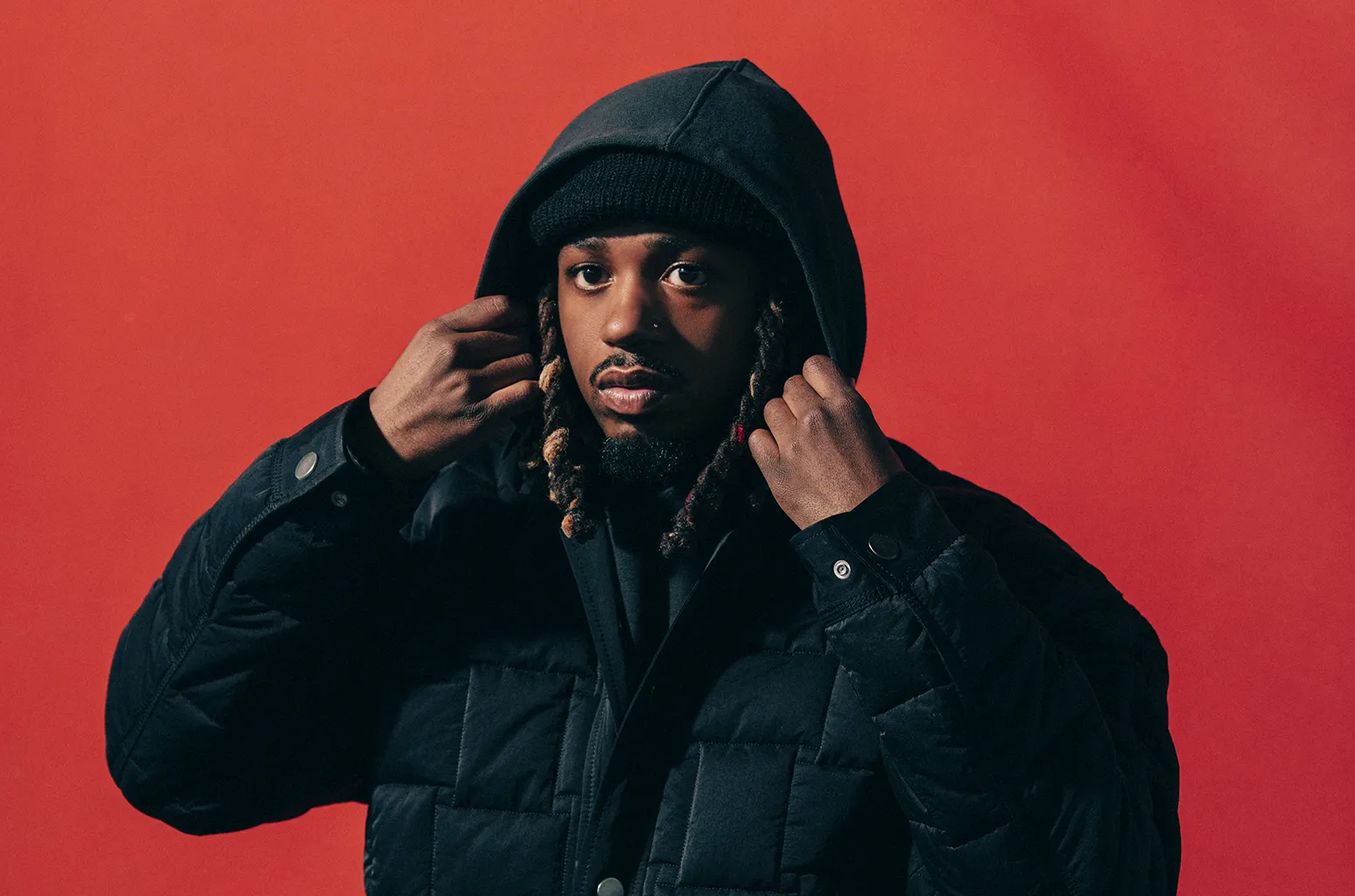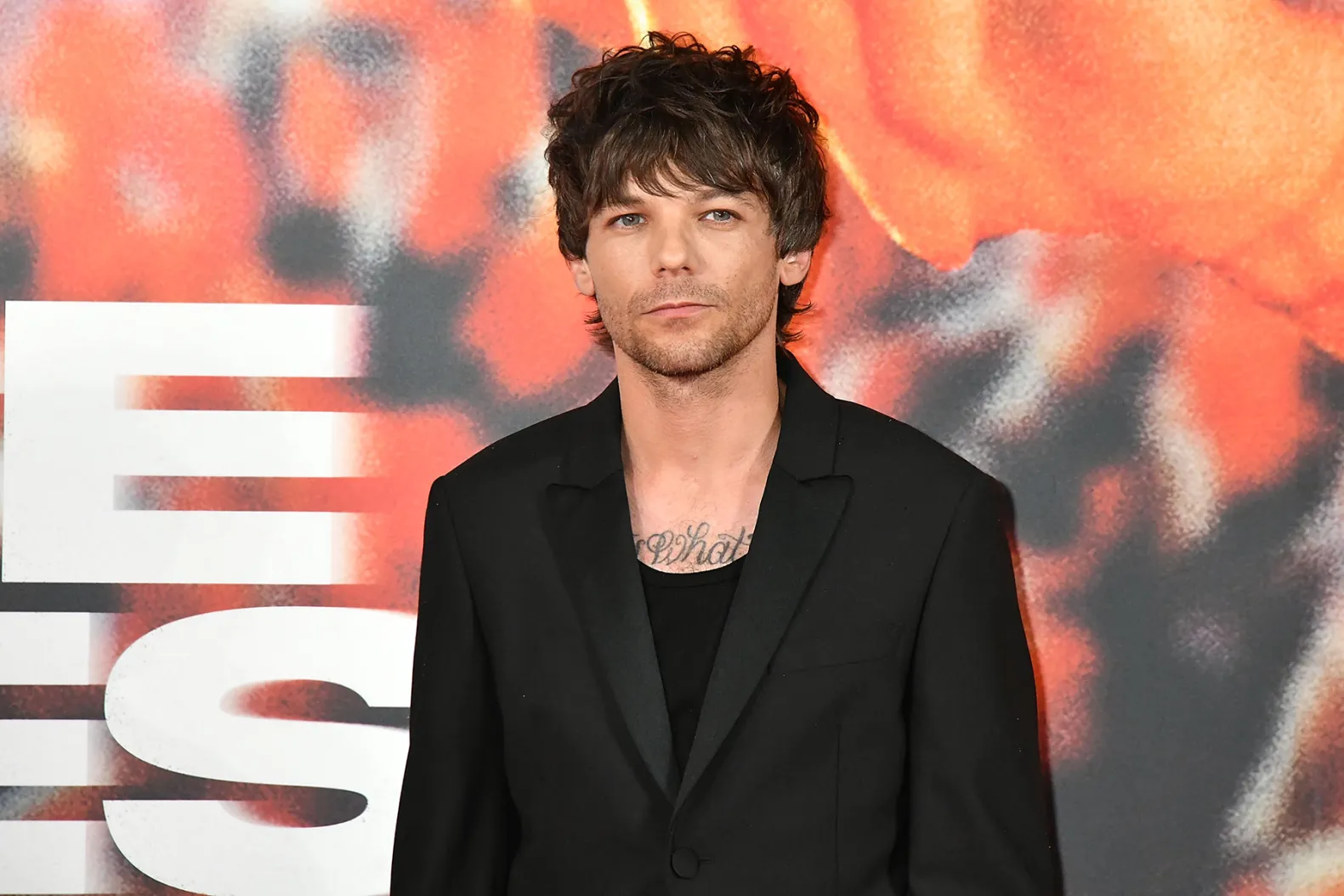

Venice Film Festival Sees “Free Palestine” Protest at Lido Red Carpet
Global Conflict Reaches Venice
The 82nd edition of the Venice Film Festival opened amid heightened global attention on the humanitarian crisis in Gaza. Activists and cultural groups used the festival’s international platform to demand awareness and action, unveiling a “Free Palestine” banner directly in front of the iconic red carpet. The protest highlights the increasing intersection between global political issues and the arts, demonstrating how cultural events can become spaces for activism and advocacy.
With dozens of activists present, the protest drew immediate attention from both Italian and international media. The slogans “Free Palestine” and “Stop the Genocide” were chanted repeatedly, emphasizing the urgency of the demonstrators’ message. This bold display occurred just hours ahead of the festival’s opening night, signaling the protesters’ intent to leverage the global spotlight of Venice for their cause.
Activists Call for Venice Film Festival to Condemn Israel
The demonstrators called on the Venice Film Festival to take a public stand against Israel’s military actions in Gaza. Among the protesters were trade unions, feminist groups, anti-racist organizations, environmental activists, student collectives, and Palestinian community representatives. International networks such as Extinction Rebellion and Refugees Welcome also joined the coalition.
The activists demanded the festival condemn what they described as “the genocide in Palestine perpetrated by Israel” and expose “the complicity of Western governments.” By targeting a high-profile cultural event, they aimed to amplify global awareness of the ongoing humanitarian crisis and challenge influential institutions to take ethical stances.
The Banner and Red Carpet Protest
At approximately 10 a.m., the activists gathered at the Lido, the site of the Venice Film Festival. A prominent banner reading “Free Palestine. Stop the Genocide” was displayed for attendees, journalists, and photographers, ensuring the message reached a wide audience. Participants also concluded their demonstration with the chant “From the River to the Sea, Palestine will be Free,” a phrase that has generated controversy and varying interpretations internationally.
The protest was not limited to symbolic gestures. Spokespeople addressed the press, outlining their demands and intentions for the duration of the festival. While the event was framed as a press conference, it effectively served as a political statement in a high-visibility space, drawing attention from global media outlets.
Coalition of Supporting Organizations
The protest was backed by a broad coalition, including local cultural, political, and community organizations from across Italy, alongside NGOs such as Emergency and Mediterranea Saving Humans. Film industry associations, including guilds for editors, casting directors, and technicians, joined the demonstration. Prominent film collectives such as ZaLab and the Perugia Social Film Festival also supported the effort, demonstrating the depth of solidarity between civil society and the cultural sector.
By uniting activists, artists, and professionals, the protest illustrated how cultural diplomacy and civil activism can converge, amplifying marginalized voices and providing a platform for urgent global issues.
Planned March Across the Lido
The activist groups announced plans for a march on Saturday, Aug. 30, beginning at the Santa Maria Elisabetta water bus stop and proceeding to the festival red carpet. Organizers described the march as a “symbolic and political choice” meant to draw sustained attention to Palestine and break the silence surrounding the ongoing crisis.
Such demonstrations at cultural events underscore a growing trend in festival activism, where attendees and organizers use cinematic platforms to engage in political discourse and humanitarian advocacy. The Venice Film Festival, known for its international visibility, became a stage for these intersecting narratives.
Venice4Palestine Open Letter
In addition to in-person protests, hundreds of filmmakers, artists, and cultural figures signed an open letter under the banner Venice4Palestine (V4P). The letter urged festival organizers to take a “clear and unambiguous stand” against what the signatories described as genocide and ethnic cleansing in Gaza.
The letter was sent on Aug. 22 to the Biennale di Venezia, as well as independent festival sections such as Venice Days and International Critics’ Week. It framed the festival as a potential site for dialogue and active participation, rather than “a sad and empty showcase.”
By leveraging the festival’s international influence, the coalition sought to elevate awareness of Gaza’s humanitarian crisis and inspire ethical reflection among attendees, industry professionals, and global audiences.
Biennale Response
In response, the Biennale di Venezia emphasized the festival’s history as a space for open discussion and cultural sensitivity. The organization highlighted that films being presented at the festival reflect pressing global issues. One notable example is The Voice of Hind Rajab, directed by Kaouther Ben Hania, which dramatizes the killing of a 5-year-old Palestinian girl in Gaza in 2024.
The film, produced with the support of Hollywood figures including Brad Pitt, Joaquin Phoenix, Rooney Mara, Jonathan Glazer, and Alfonso Cuaron, will compete in the festival’s main section. This underscores how cinema and activism can intersect, offering audiences both artistic insight and engagement with global crises.
Activism in the Film Industry
The Venice protests are part of a broader trend in which film industry figures engage in political activism. Notably, screenwriter Paul Laverty, a signatory to the Venice4Palestine letter, was recently arrested in Scotland during a pro-Palestine demonstration. Laverty was charged under the U.K. Terrorism Act for displaying a t-shirt supporting Palestine Action, a proscribed organization.
This event highlights the personal risks faced by activists within the arts, reflecting a broader movement where artists use their platforms to challenge policies and advocate for human rights. Such intersections of art, activism, and legal challenges underscore the role of cultural professionals as agents of social change.
Global Media Coverage and Public Reactions
The protest received extensive attention from both Italian and international media outlets, drawing commentary on the appropriateness of political demonstrations at cultural festivals. While some praised the activists’ boldness and commitment to humanitarian issues, others debated the messaging and slogans, reflecting the polarized responses often associated with Middle East advocacy.
Social media amplified the protest, with hashtags and viral content spreading awareness to global audiences. The Venice Film Festival, traditionally celebrated for cinematic achievements, now also serves as a stage for political engagement and social responsibility.
The Role of Festivals in Social Activism
The events at Venice illustrate a growing expectation that major cultural institutions address pressing global issues. By combining art, film, and activism, festivals can foster dialogue, raise awareness, and challenge audiences to reflect on humanitarian crises.
The Venice protests exemplify how cultural platforms can be mobilized to demand accountability, highlight marginalized voices, and encourage global solidarity. Activists’ actions demonstrate the potential for artistic spaces to intersect with civic engagement, encouraging broader discussions beyond the screen.
Conclusion: Venice as a Platform for Awareness
The 82nd Venice Film Festival has become more than a showcase of international cinema; it now serves as a focal point for activism and global dialogue. The “Free Palestine” banner and associated demonstrations illustrate the potential for cultural events to amplify urgent humanitarian issues.
As activists, filmmakers, and audiences continue to converge at Venice, the festival underscores the power of cinema and culture to influence public discourse. By combining artistic excellence with civic responsibility, Venice demonstrates that film festivals can be sites of meaningful engagement and social impact.
While debates over slogans, political messaging, and advocacy will continue, one fact is clear: the Venice Film Festival remains a dynamic platform where art, activism, and global issues intersect, shaping the conversation around pressing international concerns like Gaza.




















